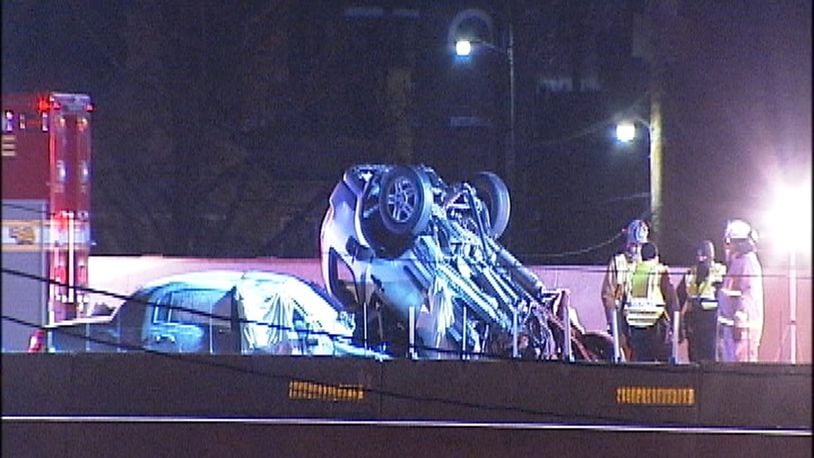Anthony Revels, 59, and his passenger Michael Jackson, 53, were traveling southbound on Interstate 75 through downtown Dayton when Glenn Ellis Jr., 47, a driver police say was going the wrong way, plowed into Revels’ car about.
FIRST REPORT: Drugs, alcohol potential factors in wrong-way crash on I-75 in Dayton
A Dayton Police Department crash report reveals Ellis was driving a mini-van northbound in the center, southbound lane of I-75 when he struck Revels’ Toyota Prius at about 1:55 a.m.
Revels tried to swerve to avoid Ellis’ oncoming minivan, and in doing so avoided a head-on collision, according to the report.
All three were taken to Miami Valley Hospital, but they were not reported as patients on Monday. The crash remains under investigation while Ellis’ toxicology lab results are processed.
Though wrong-way crashes accounted for fewer than 1 percent of Ohio’s 1,054 traffic crashes in 2016, a person was 100 times more likely to die if involved in one, according to the Ohio Department of Transportation statistics.
Lt. Mark Nichols, of the Ohio State Highway Patrol’s Dayton Post, said wrong-way crashes most often result from driver impairment or disorientation.
RELATED: Arizona to test wrong-way driver detection: Could tech save lives here?
In February of 2016, five people, including several local musicians, were killed in a wrong-way crash blamed on alcohol on Interstate 75 not far from the scene of Saturday’s crash.
RELATED: Five dead on I-75: What you should remember a year later
Nichols suggests ways to prevent and avoid wrong-way accidents:
No drinking or drugged driving: Do not get behind the wheel after drinking or using drugs. If you see a dangerous driver, report it, he said. "We count on the public as a whole to call those cars out if they see something — not just wrong-way driving — but erratic or unusual driving anyway. Call 911."
Buckle up and stay alert: Wear seat belts and make driving the number one priority by limiting distractions. Stay off your cell phone, turn down the radio and focus on driving because, "there's probably nothing more unexpected than to see a car coming at you the wrong way on an interstate," he said.
If confronted with a wrong-way driver, try to push to the right: "We don't want you to go into opposing traffic. If there's no median we don't want the car that's not going wrong-way to end up going the wrong way to avoid a car that's coming," Nichols said. Once safe and off the traveled portion of roadway, call 911.
About the Author
